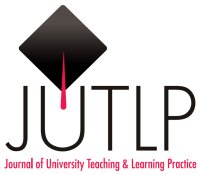How can critical thinking be recognised and developed in students that are still developing tertiary-level English language proficiency?
As many international students attending Western universities do not have English as their first language, they can experience difficulty sharing their wealth of ideas. As critical thinking and academic writing are often mutually dependent, this study sought to explore how international students exp...
| Institution: | University of Queensland. UQ College |
|---|---|
| Auteur principal: | Clark, Lorna |
| Publié: |
Advancing Scholarship and Research in Higher Education v.3 n.1 p.1-22 https://asrhe.org/index.php/asrhe/article/view/6739/5835
2022
|
| Sujets: | |
| Accès en ligne: | https://asrhe.org/index.php/asrhe/article/view/6739/5835 |
Documents similaires
-
Degrees of Proficiency : Building a Strategic Approach to University Students' English Language Assessment and Development : Final Report.
par: Dunworth, Katie
Publié: (2013) -
Good practice report : English language proficiency.
par: Arkoudis, Sophie, et autres
Publié: (2014) -
Working in the third space : promoting interdisciplinary collaboration to embed English language development into the disciplines : final report.
par: Briguglio, Carmela
Publié: (2014) -
Who says "Ps get Degrees"? Examining the Profile of Undergraduate Students Maintaining High Achievement at University.
par: Lydster, Cameron
Publié: (2024) -
The Effectiveness and Transferability of a Block-Mode Discipline-Specific Academic Language Development Program.
par: Yeo, Joseph, et autres
Publié: (2023)





















